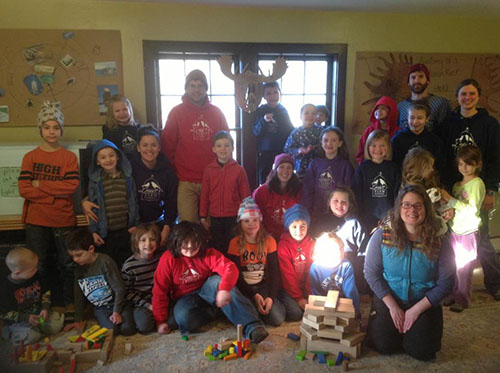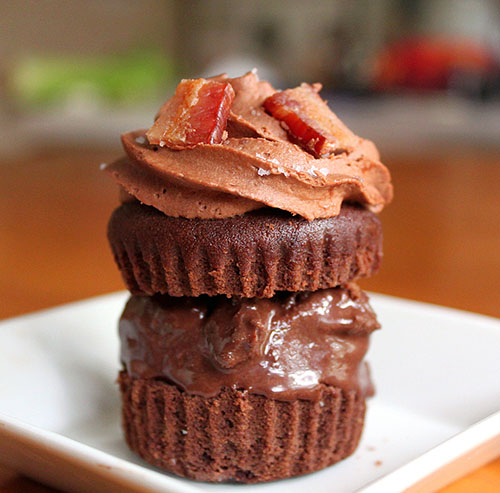Well, Farmgirls, we’ve done it, we’ve turned another page in history and now have a nearly blank page to fill with the trials and tribulations of 2013. What stories will top our bank of memories at the end of the year? Will the great and beautiful outweigh the hard and sad? Will our adventures outnumber moments of inertia? I have a feeling this year is going to be great! Maybe thats just because of my unorthodox attraction to the number thirteen, though…
-
“
Twenty years from now you will be more disappointed by the things that you didn’t do than by the ones you did do. So throw off the bowlines. Sail away from the safe harbor. Catch the trade winds in your sails. Explore. Dream. Discover.
”
~ Mark Twain
Debbie Bosworth
is a certified farmgirl at heart. She’s happily married to her beach bum Yankee husband of 20 years. She went from career gal to being a creative homeschooling mom for two of her biggest blessings and hasn’t looked back since. Debbie left her lifelong home in the high desert of Northern Nevada 10 years ago and washed up on the shore of America’s hometown, Plymouth, MA, where she and her family are now firmly planted. They spend part of each summer in a tiny, off–grid beach cottage named “The Sea Horse.”
“I found a piece of my farmgirl heart when I discovered MaryJanesFarm. Suddenly, everything I loved just made more sense! I enjoy unwinding at the beach, writing, gardening, and turning yard-sale furniture into ‘Painted Ladies’ I’m passionate about living a creative life and encouraging others to ‘make each day their masterpiece.’”
Column contents © Deb Bosworth. All rights reserved.
Being a farmgirl is not
about where you live,
but how you live.
Rebekah Teal
is a “MaryJane Farmgirl” who lives in a large metropolitan area. She is a lawyer who has worked in both criminal defense and prosecution. She has been a judge, a business woman and a stay-at-home mom. In addition to her law degree, she has a Masters of Theological Studies.
“Mustering up the courage to do the things you dream about,” she says, “is the essence of being a MaryJane Farmgirl.” Learning to live more organically and closer to nature is Rebekah’s current pursuit. She finds strength and encouragement through MaryJane’s writings, life, and products. And MaryJane’s Farmgirl Connection provides her a wealth of knowledge from true-blue farmgirls.
Column contents © Rebekah Teal. All rights reserved.
“
Keep close to Nature’s heart … and break clear away once in awhile to climb a mountain or spend a week in the woods, to wash your spirit clean.
”
~ John Muir
Cathi Belcher
an old-fashioned farmgirl with a pioneer spirit, lives in the White Mountains of New Hampshire. As a “lifelong learner” in the “Live-Free-or-Die” state, she fiercely values self-reliance, independence, freedom, and fresh mountain air. Married to her childhood sweetheart of 40+ years (a few of them “uphill climbs”), she’s had plenty of time to reinvent herself. From museum curator, restaurant owner, homeschool mom/conference speaker, to post-and-beam house builder and entrepreneur, she’s also a multi-media artist, with an obsession for off-grid living and alternative housing. Cathi owns and operates a 32-room mountain lodge. Her specialty has evolved to include “hermit hospitality” at her rustic cabin in the mountains, where she offers weekend workshops of special interest to women.
“Mountains speak to my soul, and farming is an important part of my heritage. I want to pass on my love of these things to others through my writing. Living in the mountains has its own particular challenges, but I delight in turning them into opportunities from which we can all learn and grow.”
Column contents © Cathi Belcher. All rights reserved.
“
Wherever you go, no matter the weather, always bring your own sunshine.
”
~ Anthony J. D’Angelo
Dori Troutman
Dori Troutman is the daughter of second generation cattle ranchers in New Mexico. She grew up working and playing on the ranch that her grandparents homesteaded in 1928. That ranch, with the old adobe home, is still in the family today. Dori and her husband always yearned for a ranch of their own. That dream came true when they retired to the beautiful green rolling hills of Tennessee. Truly a cattleman’s paradise!
Dori loves all things farmgirl and actually has known no other life but that. She loves to cook, craft, garden, and help with any and all things on their cattle farm.
Column contents © Dori Troutman. All rights reserved.
Shery Jespersen
Previous Ranch Farmgirl,
Oct 2009 – Nov 2013Wyoming cattle rancher and outpost writer (rider), shares the “view from her saddle.” Shery is a leather and lace cowgirl-farmgirl who’s been horse-crazy all of her life. Her other interests include “junktiques,” arts and crafts, glamping, collecting antique china, and cultivating mirth.

Mary Murray
describes herself as a goat charmer, chicken whisperer, bee maven, and farmers’ market baker renovating an 1864 farmhouse on an Ohio farm. With a degree in Design, Mary says small-town auctions and country road barn sales "always make my heart skip a beat thinking about what I could create or design out of what I’ve seen.”
Rooted in the countryside, she likes simple things and old ways … gardening, preserving the harvest, cooking, baking, and all things home. While you might find her selling baked goods from the farm’s milkhouse, teaching herself to play the fiddle, or sprucing up a vintage camper named Maizy, you will always find her in an apron!
Mary says, “I’m happiest with the simple country pleasures … an old farmhouse, too many animals, a crackling fire, books to read, and the sound of laughter … these make life just perfect.”
Column contents © Mary Murray. All rights reserved.
Farmgirl
is a condition
of the heart.
Alexandra Wilson
is a budding rural farmgirl living in Palmer, the agricultural seat of Alaska. Alex is a graduate student at Alaska Pacific University pursuing an M.S. in Outdoor and Environmental Education. She lives and works on the university’s 700 acre environmental education center, Spring Creek Farm. When Alex has time outside of school, she loves to rock climb, repurpose found objects, cross-country ski on the hay fields, travel, practice yoga, and cook with new-fangled ingredients.
Alex grew up near the Twin Cities and went to college in Madison, Wisconsin—both places where perfectly painted barns and rolling green farmland are just a short drive away. After college, she taught at a rural middle school in South Korea where she biked past verdant rice paddies and old women selling home-grown produce from sidewalk stoops. She was introduced to MaryJanesFarm after returning, and found in it what she’d been searching for—a group of incredible women living their lives in ways that benefit their families, their communities, and the greater environment. What an amazing group of farmgirls to be a part of!
Column contents © Alexandra Wilson. All rights reserved.
Libbie Zenger
Previous Rural Farmgirl,
June 2010 – Jan 2012Libbie’s a small town farmgirl who lives in the high-desert Sevier Valley of Central Utah on a 140-year-old farm with her husband and two darling little farmboys—as well as 30 ewes; 60 new little lambs; a handful of rams; a lovely milk cow, Evelynn; an old horse, Doc; two dogs; a bunch o’ chickens; and two kitties.
René Groom
Previous Rural Farmgirl,
April 2009 – May 2010René lives in Washington state’s wine country. She grew up in the dry-land wheat fields of E. Washington, where learning to drive the family truck and tractors, and “snipe hunting,” were rites of passage. She has dirt under her nails and in her veins. In true farmgirl fashion, there is no place on Earth she would rather be than on the farm.
Farmgirl spirit can take root anywhere—dirt or no dirt.

Nicole Christensen
Suburban Farmgirl Nicole Christensen calls herself a “vintage enthusiast”. Born and raised in Texas, she has lived most of her life in the picturesque New England suburbs of Connecticut, just a stone’s throw from New York State. An Advanced Master Gardener, she has gardened since childhood, in several states and across numerous planting zones. In addition, she teaches knitting classes, loves to preserve, and raises backyard chickens.
Married over thirty years to her Danish-born sweetheart, Nicole has worked in various fields, been a world-traveler, an entrepreneur and a homemaker, but considers being mom to her now-adult daughter her greatest accomplishment. Loving all things creative, Nicole considers her life’s motto to be “Bloom where you are planted”.
Column contents © Nicole Christensen. All rights reserved.
Paula Spencer
Previous Suburban Farmgirl,
October 2009 – October 2010Paula is a mom of four and a journalist who’s partial to writing about common sense and women’s interests. She’s lived in five great farm states (Michigan, Iowa, New York, Tennessee, and now North Carolina), though never on a farm. She’s nevertheless inordinately fond of heirloom tomatoes, fine stitching, early mornings, and making pies. And sock monkeys.
-
Archives











resolved to eat more greens, and yes, do more yoga, and take more walks outside 😉
I really look forward to reading your posts this year! I have never been to Alaska, but always wanted to go and am excited to hear more about it from you. You sound like a really cool Farm Girl!
I think that messy people are the most creative so don’t stress to much!
Do the Best I can…for Me and others…Happy New Year Ahead…
Hi Alex,
I’ve decided to keep my ears held close to my heart so I don’t miss out the direction I am supposed to be going in…!
I also started walking just before Christmas and as soon as I get over this blasted flu I’ll be bundling up at 5:30 am to meet my walking pal at the end of my driveway for a new year of exercising more regularly! I do think winter time makes us all feel a bit yo-yo ish as far as inertia setting in… after all we are supposed to be resting up for a busy spring! Good luck with your resolutions and your lists! Can’t hurt!
Deb ( your farmgirl sis at the beach )
I resolved to develop better sleep patterns, move more, and leave a job that has left me feeling toxic and unhappy. I gave my notice this week and am taking a leap of faith. No matter how bad the economy is, if I’m willing to work, there’s no reason I can’t find a job.
I still would like to read my way through the Classics…that is an ongoing resolution. Would LOVE to have Buff Orpington chickens…still trying to talk Hubby into this one!
I love these resolutions! As an English Major, I have a special spot in my heart (and library) for the Classics. Maybe you can make some kind of deal the the Hubby about the chix? You can let him read the Classics and report back to you, and you can get chickens.